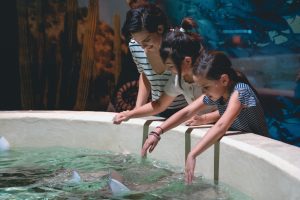The Neuroscience of Lifelong Learning
Learning is a lifelong process that begins from the moment we are born and continues until our last breath. It is a never-ending journey that enables us to acquire new knowledge, develop new skills, and adapt to new situations. However, as we grow older, many of us tend to believe that our brains are not as sharp as they used to be and that learning becomes more challenging. But what if I tell you that the opposite is true? Thanks to the advancements in neuroscience, we now know that our brains are wired for learning throughout our entire lives. In this article, we will uncover the fascinating world of the neuroscience of lifelong learning and how it can help us become better learners and lead fulfilling lives.
The Neuroscience of Learning
Before we delve into the concept of lifelong learning, let’s first understand the neuroscience behind learning itself. Our brains are made up of billions of neurons, which are constantly communicating with each other through electrical and chemical signals. When we learn something new, these neurons create new connections and pathways, known as synapses. The more we practice and repeat the same information, the stronger these connections become, making it easier for us to recall that information in the future.
Furthermore, the brain is highly adaptive and malleable, known as neuroplasticity. This means that it has the ability to reorganize and change its structure in response to experiences and new information. This is why learning new skills and developing new habits can be challenging at first, but with enough practice, our brains rewire themselves, making these tasks more natural and effortless. This is the fundamental principle behind lifelong learning.
The Benefits of Lifelong Learning
Now that we understand how our brains are wired for learning, let’s explore the advantages of lifelong learning. Here are some of the top benefits:
1. Keeps Your Brain Sharp
The famous saying “use it or lose it” is entirely accurate when it comes to brain health. Continuing to learn new things and challenging our brains helps keep them active, preventing cognitive decline and memory loss. Research has also shown that learning something new can stimulate the production of new brain cells, promoting brain plasticity and improving overall brain health.
2. Expands Your Knowledge and Skills
Lifelong learning is not just about acquiring new information; it also helps us develop new skills and perspectives. Learning new things beyond our comfort zone allows us to broaden our knowledge and have a more well-rounded understanding of the world. It also opens doors to new opportunities and enhances our problem-solving skills, critical thinking, and creativity.
3. Boosts Self-Confidence and Self-Esteem
The sense of achievement and accomplishment that comes with learning something new can do wonders for our self-confidence and self-esteem. As we successfully acquire new knowledge and skills, we start believing in our abilities and feel more confident in tackling new challenges. This, in turn, leads to a more positive and fulfilling life.
How to Embrace Lifelong Learning
Now that we are aware of the benefits of lifelong learning, how can we incorporate it into our daily lives? Here are some tips:
1. Be Curious and Open-Minded
The first step towards lifelong learning is to be curious about the world around us and have an open mind to new ideas and perspectives. Don’t be afraid to ask questions, explore new subjects, and challenge your beliefs. This will keep your mind engaged and eager to learn more.
2. Read Widely
Reading is a fantastic way to expand your knowledge and learn new things. Read books, articles, and blogs from various genres and topics. Don’t limit yourself to just one subject; instead, explore different fields and gain a broad understanding of the world.
3. Take a Course or Attend Workshops
There are plenty of online courses and workshops available that cover a wide range of topics. Find something that interests you and enroll in a course. You can also attend seminars and workshops in your community to learn something new and meet like-minded individuals.
4. Travel and Explore
Traveling and exploring new places is an excellent way to learn about different cultures, traditions, and ways of life. It also exposes us to new experiences and challenges, stimulating our brains and promoting lifelong learning.
5. Never Stop Practicing
As mentioned earlier, practice is crucial for our brains to retain new information and skills. Don’t be discouraged if you don’t get something right on the first try; keep practicing, and you will see the progress over time.
The Bottom Line
Lifelong learning is not just a concept; it is a way of life that has numerous benefits for our overall well-being. Our brains are constantly evolving, and with the right mindset and practices, we can continue learning and growing throughout our entire lives. So, let’s embrace the journey of lifelong learning and unleash our true potential.











